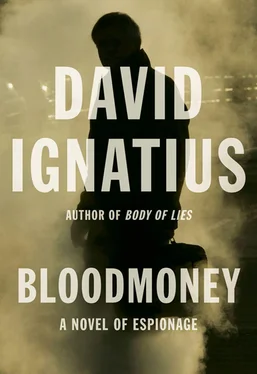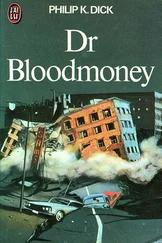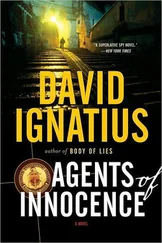David Ignatius - Bloodmoney
Здесь есть возможность читать онлайн «David Ignatius - Bloodmoney» весь текст электронной книги совершенно бесплатно (целиком полную версию без сокращений). В некоторых случаях можно слушать аудио, скачать через торрент в формате fb2 и присутствует краткое содержание. Жанр: Шпионский детектив, на английском языке. Описание произведения, (предисловие) а так же отзывы посетителей доступны на портале библиотеки ЛибКат.
- Название:Bloodmoney
- Автор:
- Жанр:
- Год:неизвестен
- ISBN:нет данных
- Рейтинг книги:4 / 5. Голосов: 1
-
Избранное:Добавить в избранное
- Отзывы:
-
Ваша оценка:
- 80
- 1
- 2
- 3
- 4
- 5
Bloodmoney: краткое содержание, описание и аннотация
Предлагаем к чтению аннотацию, описание, краткое содержание или предисловие (зависит от того, что написал сам автор книги «Bloodmoney»). Если вы не нашли необходимую информацию о книге — напишите в комментариях, мы постараемся отыскать её.
Bloodmoney — читать онлайн бесплатно полную книгу (весь текст) целиком
Ниже представлен текст книги, разбитый по страницам. Система сохранения места последней прочитанной страницы, позволяет с удобством читать онлайн бесплатно книгу «Bloodmoney», без необходимости каждый раз заново искать на чём Вы остановились. Поставьте закладку, и сможете в любой момент перейти на страницу, на которой закончили чтение.
Интервал:
Закладка:
“Because those records aren’t here, that’s why not. And watch your language.”
“Where are they, if they aren’t here?”
“Mr. Gertz has them. I don’t know where he keeps them. And I know for certain that nobody has ever accessed them, because if they had, they would have asked me first, just like you did. But it’s a waste of time. The disbursements are off-line. When I have questions about money, I ask Mr. Gertz. So should you.”
Sophie Marx returned to the Vault, more confused now than before. She still wanted to answer the basic question: What were The Hit Parade’s objectives in Pakistan? But she wondered now if she might have been misjudging the program’s scope. She had assumed that Howard Egan was the only officer handling Pakistani cases, but that might be wrong. She took up her flashlight again and went prowling in the main personnel and travel files. Because the data wasn’t computerized, there was no easy way to do a search and cross-tab for anyone who had visited Pakistan or handled a Pakistani agent. It all had to be done by hand.
Marx went back to the registry of cryptonyms and looked for all the cases with the AC digraph, which marked the agents as Pakistani. It took her the rest of the afternoon to pull together the information, but it was worth the trouble. She realized that she had been looking at a piece of a larger Pakistan operation.
There were fully nineteen cases, including the four that had been handled by Howard Egan. The others had been run by case officers who were based in Paris, Beirut, New Delhi, Cairo and Amsterdam.
Armed with the agents’ code names, she went back to the inner file of true names and began to assemble the picture. The Hit Parade had recruited senior officials from all three major Pakistani political parties; it was paying money to the leaders of four more tribes in the frontier areas, two in North Waziristan, one in Orakzai and one in Malakand. It had two more agents from Kashmir on the payroll, and three prominent Pakistani clerics.
A new operation was scheduled soon, according to the files. A young case officer based in Amsterdam was about to meet for the first time with a new prospect, a young Pakistani diplomat from a well-known family who was serving in the Pakistan Embassy in Moscow. The name of The Hit Parade officer from Amsterdam stuck in her mind. It was Alan Frankel: He was the guy with red hair who was writing a blog as part of his cover. She had met him six months ago, when he was getting some new tradecraft training. She had thought at the time that he was cute, and had half hoped he would ask her out, but he hadn’t.
What Sophie Marx had found looked like a broad network, of the sort that back at Headquarters might have been handled by the Special Activities Division. In theory, all such covert operations were supposed to be driven by a strategic plan, which was reviewed and updated periodically. But there was no trace of such strategic guidance for Pakistan operations. Where did these projects come from? How were they tasked? Who suggested the names?
She went to the Colonel one last time before turning in her flashlight for good.
“I’d like to see the Special Activities finding for Pakistan,” she said. “And don’t just say, ‘You can’t.’”
“You can’t.”
“Oh, please! Why not?”
“Because it doesn’t exist. Not on paper at least, not that I’ve seen.”
“Well, where is it? There has to be a plan. We don’t just send people all over the world willy-nilly. There’s a directive, a finding.”
“It’s in Mr. Gertz’s head. He’s the boss. Maybe he writes it down, and maybe he doesn’t, I wouldn’t know about that. I’m sure he reviews it with somebody, but I wouldn’t know about that, either. So what you’re going to have to do, Miss Marx, is wait to see Mr. Gertz when he gets back.”
For once, the Colonel had it completely right. There was no choice now but to wait for the boss to return.
Marx stopped by Rossetti’s office on her way out, to thank him for his intervention. He was still there, gazing at his computer screen, when Marx stuck her head in the door. Rossetti looked nervous at first, thinking she had come to ask him for something else, and he was relieved when she said she was packing it in for the night.
“You don’t give up, do you?” he said. “Are you always like this?”
The question caught her off guard. She was so tired, all she could do was answer honestly.
“I’m persistent. At least, I used to be, when I was in the field. I got lazy when I was back at Headquarters. It’s all in my file, if you want the details.”
“I know,” he said. “I’ve been reading. I got curious.”
“So you know I got in trouble in Addis Ababa?”
“Yeah, but why? That wasn’t clear. They always leave the good stuff out of a 201.”
“I got burned, that’s what happened. I was covered as a UNESCO officer in Paris, which gave me a reason to visit U.N. offices in Lebanon and Ethiopia regularly. I was working developmentals mostly, going in and out of Beirut, working out of the UNESCO office in Mar Elias. I nailed a recruitment there that got us inside the Hezbollah communications net. I was thinking I was pretty cool. But then it got nasty.”
“What happened?”
“They made me on my next trip to Ethiopia. It was bad.”
“Tell me the story. I was in Addis for a few months in the nineties.”
“Okay, so I picked up surveillance my first day. I thought I saw a chase car following my taxi to U.N. headquarters. I didn’t worry too much, and I didn’t report it. Addis wasn’t a high-threat assignment, and there were friendlies all over, and I didn’t want to scratch the trip. So I went out a second day, this time in a UNESCO staff car, a nice big Mercedes to visit a demonstration project in Debre Zeit.”
“That was a mistake, I take it.”
“Big time. Two vehicles shadowed us as soon as we left the international zone. We kept going until we got to a Muslim district called Saris, where the Somali refugees lived. The road narrowed. No friendlies around. Bad scene. Ambush zone.”
“What saved you?”
“Luck, frankly. I screamed at my driver as the cutoff car was coming toward us. I told him to floor it, and that if he slowed down, I would shoot him. It turned out that he driven a taxicab in America. That was our salvation, the fact that this Ethiopian knew how to drive like a crazy man. He gunned the car onto the shoulder. The chase cars tried to follow, but he was driving a Mercedes that could do over a hundred, no problem, and their cars were crap. So we outran them, basically.”
“No shit.” Rossetti was shaking his head. He was impressed, despite himself.
“I called the emergency number at the embassy, and the police showed up a few minutes later, and that was that.”
“And nobody got hurt?”
“Not physically. My cover was gone. Even I knew that. I put in my resignation papers at UNESCO, gave up my super-gorgeous Paris apartment and came home to Headquarters, where I was vegging out until Gertz rescued me.”
“How did the bad guys make you?” asked Rossetti “Did CI ever figure it out?”
“Nothing official. But I think it was a technical hit, some kind of data mining, back in Lebanon.”
“Come on!” Rossetti shook his head. Insurgents weren’t smart enough to do data mining.
“I’m serious. It was my cell phone calls. The Lebanese government, meaning Hezbollah, had accessed my call records. When they matched up the call data with calls made by other people they were watching, I was busted. They passed the information to their friends in Addis.”
“You really think they’re that smart?”
“They don’t have to be smart, Steve. They just need to have the same stuff we do: data-mining software; pattern analysis, link analysis; watch lists. They could be stupid as mules, but they could still nail the old CIA. That’s why The Hit Parade exists, right? To go places where they can’t find us.”
Читать дальшеИнтервал:
Закладка:
Похожие книги на «Bloodmoney»
Представляем Вашему вниманию похожие книги на «Bloodmoney» списком для выбора. Мы отобрали схожую по названию и смыслу литературу в надежде предоставить читателям больше вариантов отыскать новые, интересные, ещё непрочитанные произведения.
Обсуждение, отзывы о книге «Bloodmoney» и просто собственные мнения читателей. Оставьте ваши комментарии, напишите, что Вы думаете о произведении, его смысле или главных героях. Укажите что конкретно понравилось, а что нет, и почему Вы так считаете.












